TV Station CBC
Ise Bay Typhoon 1959 Color and Memory
DC372016![]()
伊勢湾台風60年 色と記憶 [CBC]
![]()
![]()
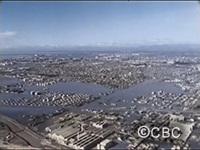
|Length : 50min |Year : 2020 |
Typhoon Ise Bay, which occurred on September 26, 1959, left 5,098 people dead or missing. Sixty years have passed since then.
In our coverage of the past, there is a common refrain among those who experienced the typhoon.
"The sky the next day was an abominable blue".
How did that blue sky look like?
This in mind led the journalist to make this documentary, a color version of the footage from that time.
What was that typhoon? What were the lessons to be learned from it?
Giving Voice to Hope
DC292448![]()
「声」-あなたへ 2024春編 [CBC]
![]()
![]()
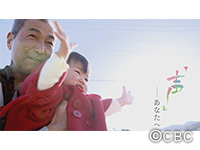
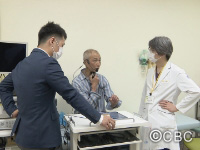
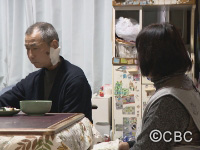
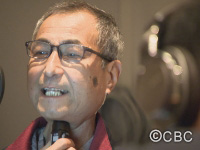

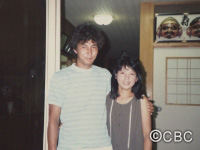
|Length : 50min |Year : 2024 |
"A ‘voice’ is a person’s life… You can save a voice, but you cannot make them happy," reflects a doctor. Hiroyuki Tashima, a 63-year-old truck driver, lost his voice after a laryngectomy due to stage 4 throat cancer. His primary physician is Dr. Naoki Nishio at Nagoya University Hospital’s Otorhinolaryngology Department.
Hiroyuki now uses an electrolarynx to produce his ‘voice,’ but the sound is monotone.
Unable to speak in a loud ‘voice,’ daily interactions, including work and shopping, are challenging. Hiroyuki’s dream is to speak again with his 2-year-old granddaughter, Ayano, using his original voice.
This dream may come true with the ‘Save the Voice Project,’ led by Dr. Nishio and started in 2021.
The project aims to develop an app that can convert the mechanical sound of an electrolarynx into a person's natural voice. This innovation could give a ‘voice’ back to 30,000 people in Japan who have lost theirs. This program follows the project’s progress over a year and a half since 2022.
”YURU“Revolution~Creating Sports for Every One~
DC291937![]()
ゆる革命 [CBC]
![]()
![]()
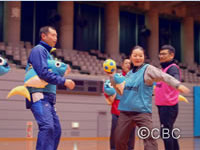
|Length : 44 |Year : 2019 |
Imagine playing table tennis with a hole in your racquet, or basketball where the ball cries like a baby unless you treat it gently.
Yuru Sports are a new genre of sports with unique rules that can be played by anyone, regardless of age, sporting ability, or even disability.
This documentary follows the man behind the Yuru Sports revolution, and how these imaginative sports are actually ‘game changers’ that tackle numerous societal issues.
“SHIKAKE”~Ideas That Trigger Behavioral Change~
DC291834![]()
つい、人は… [CBC]
![]()
![]()
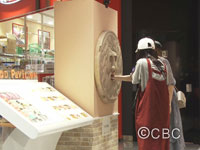
|Length : 48 |Year : 2018 |
You're in the men's bathroom. You see a target in the urinal. What do you do? You aim at it, right?
You see a basketball hoop and net. What do you want to do? You want to toss something through it, right?
If you see a viewing tube, what urge do you feel? You feel compelled to look through it, right?
Welcome to the fascinating world of "shikakeology," the brainchild of a Japanese professor who singlehandedly created an academic discipline that applies psychology to manipulate human behavior without people even realizing that they were influenced. Many of the issues we face in society today are the products of our own behavior. The problem, however, is that if someone tells us to correct our behavior, we tend to be reluctant, and if someone orders us to do it, we might even resist complying at all. But if people can be "triggered" into wanting to do something, changing their behavior is not that difficult at all.
In this program, we will explore the research of a professor who believes “SHIKAKE” is the means to trigger people toward positive changes in behavior.
It really takes much less than you might think.
Weaving -Memories of the Future
DC282286![]()
つむぐ~未来の絆~ [CBC]
![]()
![]()
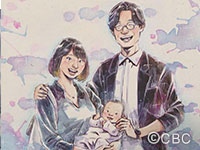
|Length : 52min |Year : 2022 |
“Kizunae” are drawings that depict people who have passed away in scenes from their future as if they were still living. Thirty-seven-year-old artist Jun Omura from Aichi Prefecture is a former caricaturist who now creates such kizunae artwork. This documentary follows Mr. Omura for two years as he meets with his clients, who are surviving family members of the deceased, and draws kizunae for them. The artwork introduced includes “a young boy whose dreams were realized,” “a sister who grew up to carry a baby,” “a wedding that never took place,” and even one of “Jun Omura’s family.”
Mr. Omura must overcome the daily anxiety that comes with bridging the gap between the “remnants” of the deceased and the “ideal image” requested by his clients. We have documented the kizunae art that he creates and the states of mind of the surviving families.














